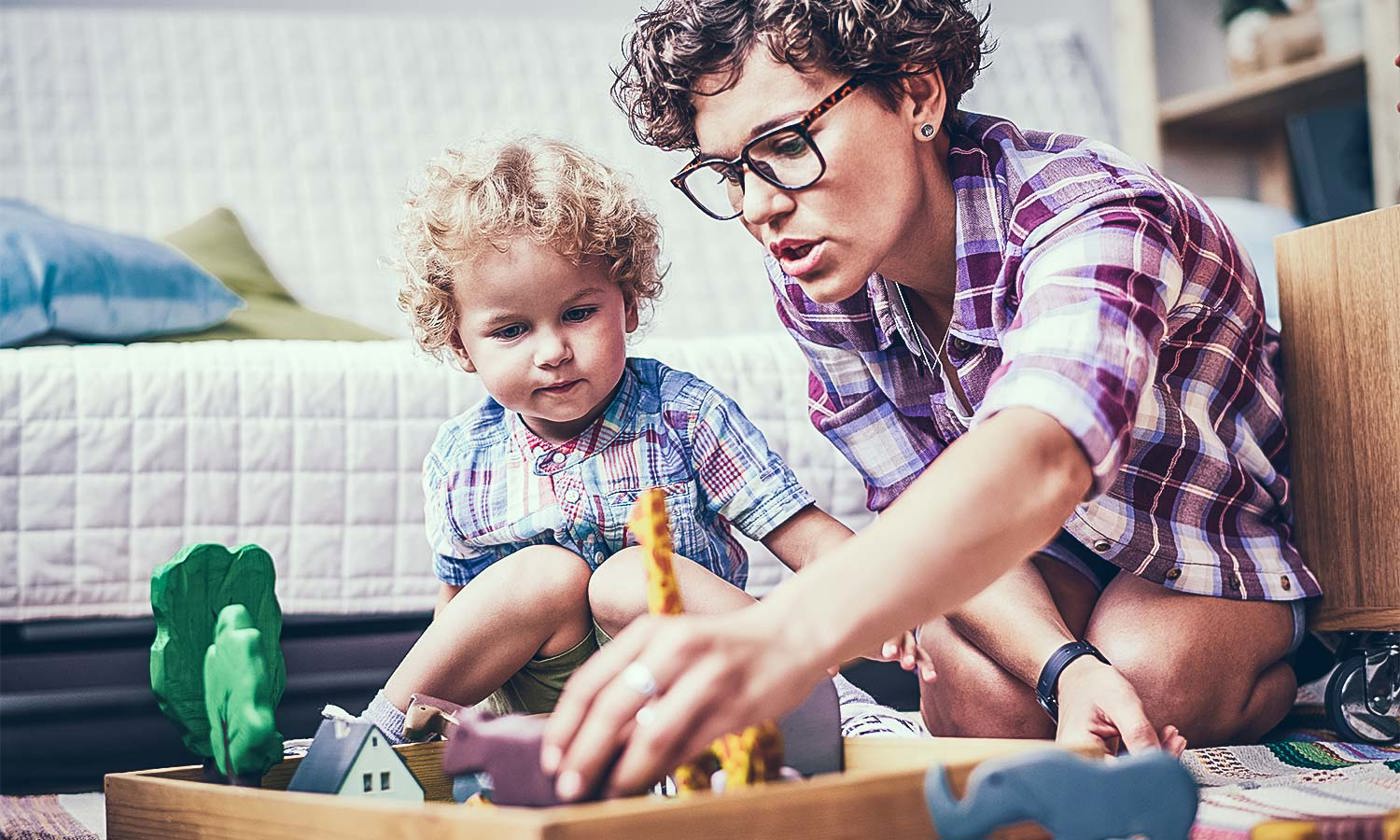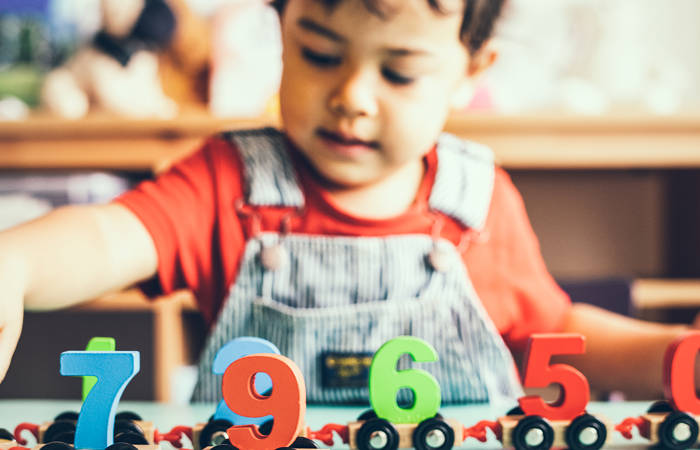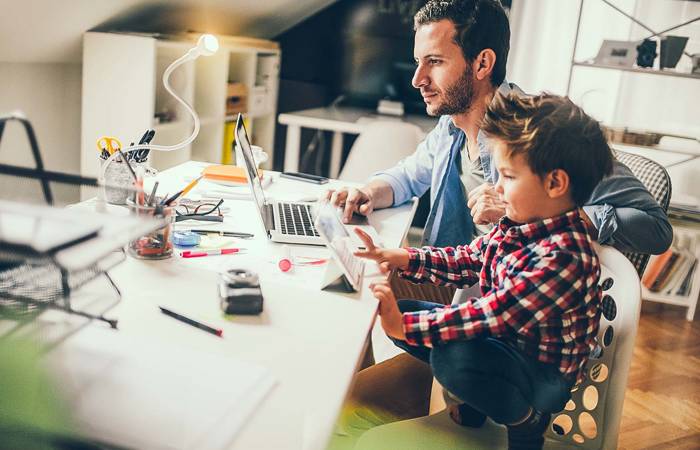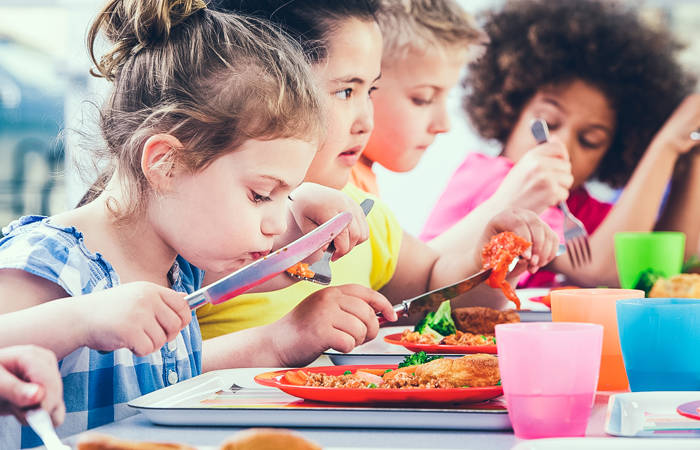Like what you see?
Sign up to receive more free parenting advice.
Thank you for subscribing to our newsletter!
Lifestyle

While one in three Australian parents say COVID-19 has negatively affected their child’s mental health, 75% of families are reporting becoming closer through the pandemic.
Despite the hardships, families have found some silver linings in the challenges of the COVID-19 pandemic, with the majority reporting their family unit is more connected, spent more time together and used their time at home to consider what’s important in life.
The results come from the Royal Children’s Hospital (RCH) National Child Health Poll, a quarterly national survey of Australian households which tackles issues in contemporary child and adolescent health.
Almost half of parents (42%) say they are now more connected to their child, with most having spent more time reading (51%) and playing games (68%) together, and 66 per cent have developed new positive family habits since COVID-19.
Unsurprisingly, children spent more time on screens for entertainment (51%), spent less time being physically active (42%) and ate more unhealthy food (25%) during the pandemic. In fact, only one in 10 children got enough exercise each day.
However, positive habits were also reported, with the vast majority of children (78%) utilising digital media to stay connected with their friends and extended family. Three-quarters of parents (75%) said their child was able to learn well remotely using digital devices.
Most parents (70%) also tried harder than usual to feed their children healthy food and taught children cooking skills, with 63 per cent of kids being more involved in preparation of food at home.
Creating positive relationships
Poll Director, paediatrician Dr Anthea Rhodes, says parents spending time with their child reading books, playing games or exercising are some of the best ways to create positive relationships, and these activities also come with benefits for both physical and mental health.
“As we continue to adjust to life through the different stages of the pandemic, one helpful thing parents can do is focus on how they can continue with these positive new habits and activities,” Dr Rhodes said.
“If kids have formed unhealthy habits during the pandemic, the best way to get back on track is to re-establish a routine that works best for you and your family. This could be cutting down on screen time and replacing it with some exercise, or setting boundaries around a healthy bedtime.
“We should also try to remember it’s okay to feel a bit lost during the pandemic. Parents may need to go easy on their kids, and themselves, and it’s reasonable to relax the rules at home for a while.
“However, as we all adjust to a ‘new normal’ it will be really important for families to find a way to get back into healthy habits, as this will help not only your child, but you too.”
Almost half of parents (42%) say they are now more connected to their child, with most having spent more time reading (51%) and playing games (68%) together, and 66 per cent have developed new positive family habits since COVID-19.Royal Children’s Hospital (RCH) National Child Health Poll
Healthcare delayed or avoided
Concerningly, the report also shows of the one in five (20%) children who became unwell or injured since the onset of the pandemic, one third (31%) had healthcare delayed or avoided by parents.
Reasons for this included parents being concerned that their child might catch COVID-19 at a healthcare facility (59%), wanting to follow government advice to stay home (38%) and not wanting to burden the hospital or GP during the pandemic (28%).
“We understand that parents are worried about COVID-19, but it is never okay to delay healthcare when it is needed. It is important parents are reassured that healthcare services, including hospitals and GPs, are safe places. Extensive precautions are in place to protect the health of every child and family. If your child is sick, please get healthcare without delay,” Dr Rhodes says.
Impacts on mental health
The findings also show the pandemic has negatively impacted the mental health of both parents (48%) and children (36%). Loneliness was a common experience for both parents and children, and strongly linked to a negative mental health impact.
“The pandemic has affected us all in different ways, and for a large proportion of us, the impacts have been negative. People need to look out for each other and find ways to stay connected,” Dr Rhodes said.
“For families facing another period of extended lockdown – this will be harder than ever. But it’s also more important than ever to try each day to fit in some exercise, healthy food, enough sleep and time to connect with others. These are the things that will help keep kids happy and healthy, and parents too.
“If you or your child are struggling please reach out to your local healthcare services and seek support. We know mental health and wellbeing can affect all aspects of our lives and it’s more important than ever to seek help now.”






